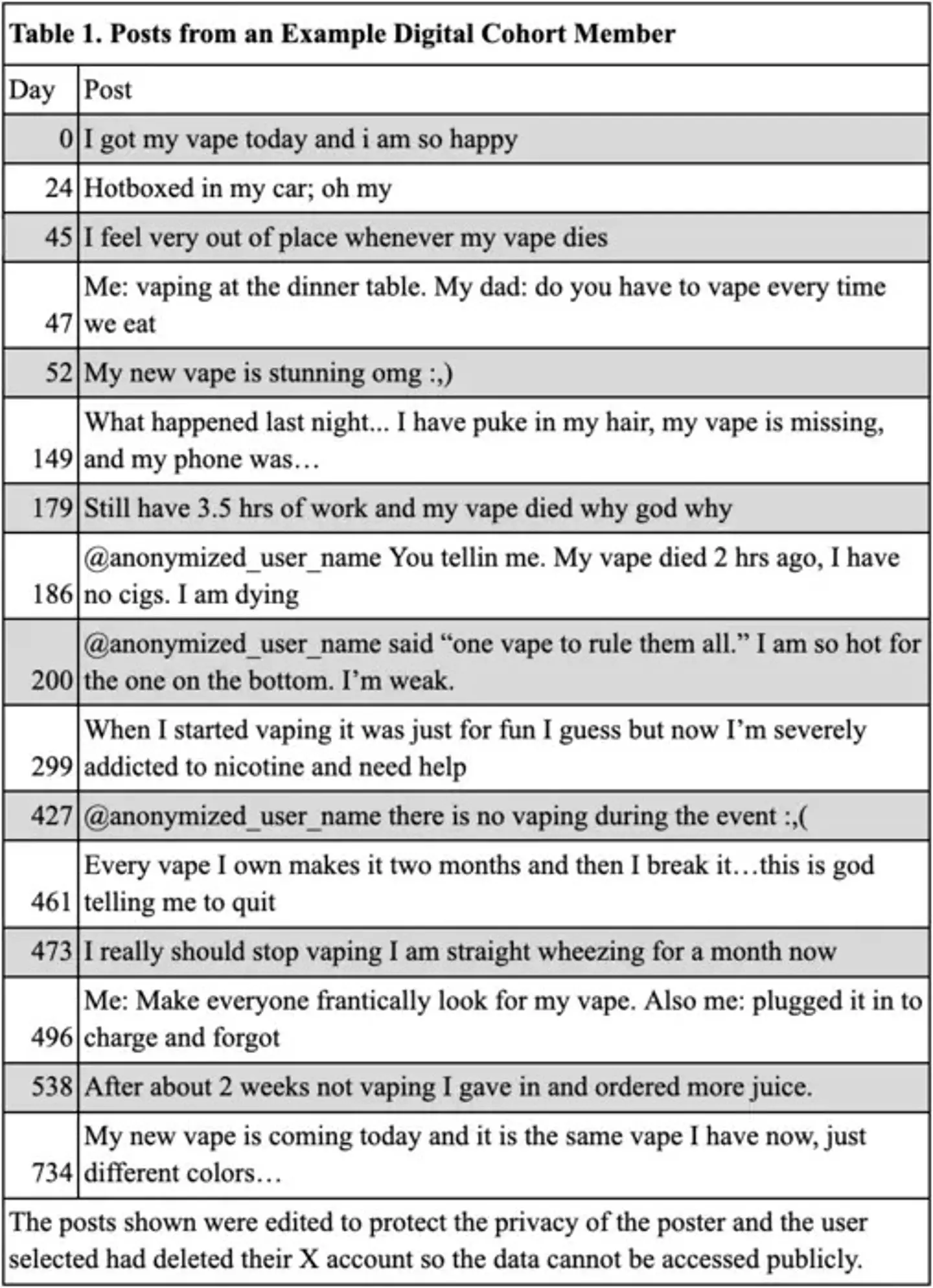
Vaping has become increasingly popular in the past ten years, as many people have chosen it as an alternative to smoking cigarettes.
A recent study about vaping has identified a new red flag that may suggest you're hooked on using e-cigarettes.
The popularity of vaping has surged in the past ten years. It was first promoted as a substitute for traditional smoking items like cigarettes and cigars. Moreover, regardless of the outcome of the 2024 general election, vaping is here to stay as a permanent option due to the smoking ban.
Ever since, they have evolved into a popular product, attracting a large number of people because of the various flavors they offer – particularly the disposable ones, which are set to be prohibited in the United Kingdom starting from April next year.
However, vaping does come with risks. For instance, a 17-year-old girl was urgently taken to the emergency room after experiencing a bluish discoloration due to vaping the equivalent of 57 cigarettes daily.
A doctor cautioned that the full risks of vaping may not be apparent until thirty years later, similar to how the dangers of tobacco products were only realized over time.
A recent study has provided information on a potential indicator of vaping addiction and whether you should consider reducing your usage.
A groundbreaking study conducted by scientists at the University of California San Diego has revolutionized our understanding of the vaping epidemic by harnessing the wealth of data found on social media platforms.
A significant change in attention has been observed regarding our vaping and social media habits, as reported in the American Journal of Preventive Medicine today (19 June). However, the impact extends beyond these areas.

Are you addicted to vaping? (Getty Stock Images)
What is the background?
John W. Ayers PhD, from UC San Diego's Qualcomm Institute, is the main author of the recent study.
Ayers mentioned that researchers who study social media usually analyze how often and what people post.
Tracking a group of individuals over time, known as a longitudinal study or cohort, is considered the most reliable form of observational scientific evidence. It can effectively reveal trends and patterns.
We created a new method called ‘digital cohort' to research e-cigarette vaping habits in the 21st century. This method helps us understand addiction development, negative effects, and attempts to quit more effectively.
Davey Smith MD, the co-author and chief of the Division of Infectious Disease and Global Public Health, mentioned that the extensive cohort study, believed to be the largest in medical history, utilized the abundant data shared by individuals on social media platforms.

Disposable vapes will be banned in the UK as of 2025 (Getty Stock Images)
The study's findings
The study had a significant point where people were evaluated.
Researchers analyzed over 19 million posts about vaping and found 25,112 X (formerly Twitter) accounts that discussed vaping in at least 10 posts. This provided the researchers with a digital group of people who collectively observed vaping for a total of 43.8 million person-days.
In the sample, people's posts showed a pattern. It started with them trying vaping and feeling pleased. However, it later shifted to vaping hacking, signs of addiction, reactions to friends who either encourage or discourage vaping, negative health effects from vaping, and ultimately, attempts to quit before relapsing.

An example of the posts people make about vaping on their social media profiles (Courtesy of Qualcomm Institute, UC San Diego)
Out of the people who vaped and were randomly selected, 27% of them tried to quit during the study. From all the first attempts to quit, 26% were successful. Among those who failed their first attempt, 13% made another attempt, and 36% of them were successful.
People usually tried to quit vaping for the first time around 531 days after their first vaping post. If the first attempt failed, they would usually make a second attempt about 361 days later.
Ayers stated that these discoveries provide us with a perspective on the journey of quitting vaping, which has been hard to gather using conventional research methods. By accessing the genuine words and experiences of vapers, this method can lead to quicker and more successful public health interventions.
What can we learn?
A recent study has discovered a distinct trend in vaping, specifically in regards to sharing experiences online. People tend to discuss both the positive and negative aspects of vaping, which becomes a significant part of their online identity.
If you can relate to this, you may belong to the group of people who are addicted.
Scientists now believe that monitoring social media posts can extend beyond vaping and be used to identify various health risks, including diseases, conditions, behaviors, and outcomes.
Featured Image Credit: Getty Stock Images













